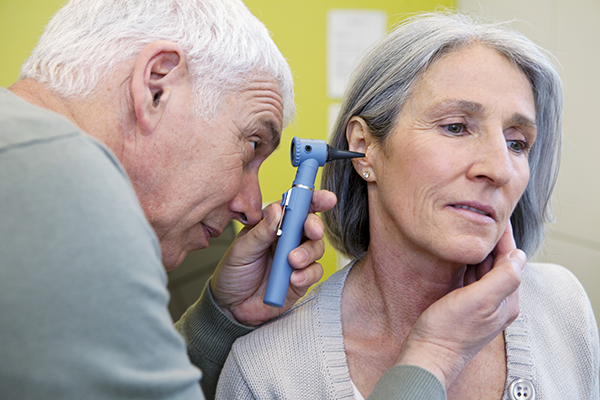 In September 2021, the World Health Organization (WHO) released a report urging WHO Member States to prioritize actions “to prevent, identify and rehabilitate hearing loss”. The reason for this urgency is due to the fact that hearing health plays an important role in overall physical, emotional, and financial well-being. Hearing loss is a global issue affecting approximately 430 million people, and there are different barriers to gaining hearing loss treatment across the life course and in each location. In the United States, hearing screening for newborns, infants, and school-age children is commonplace in the vast majority of our population. However, there is a lower rate of hearing screening and treatment for mature adults who are more at risk for hearing loss. One barrier is the lack of a systematic screening recommendation for the older adult population. This causes hearing health to sometimes be overlooked during routine wellness screenings.
In September 2021, the World Health Organization (WHO) released a report urging WHO Member States to prioritize actions “to prevent, identify and rehabilitate hearing loss”. The reason for this urgency is due to the fact that hearing health plays an important role in overall physical, emotional, and financial well-being. Hearing loss is a global issue affecting approximately 430 million people, and there are different barriers to gaining hearing loss treatment across the life course and in each location. In the United States, hearing screening for newborns, infants, and school-age children is commonplace in the vast majority of our population. However, there is a lower rate of hearing screening and treatment for mature adults who are more at risk for hearing loss. One barrier is the lack of a systematic screening recommendation for the older adult population. This causes hearing health to sometimes be overlooked during routine wellness screenings.
Hearing loss onset is often subtle and can go unrecognized for years. Although the individual with hearing loss doesn’t consider their hearing to be that bad, even mild hearing loss can double the risk of dementia and also can cause one to withdraw from social activities that they once loved. The WHO report recommends that starting by age 50, adults should have their hearing screened every five years until the age of 64. After age 65, the screening should be conducted every 1-3 years and, if possible, be coordinated with other health checks. To increase access, the report recommends that screening be conducted in a clinical community or home setting, which has become more common with the increased use of tele-health solutions.
Are you over 50? It’s time to check on your ears. Hearing health maintenance is quick and simple:
Hearing screening is simple and non-invasive and can be completed using a variety of tools, including questionnaires and sound tests conducted by a hearing care professional. Similar to what you may remember from school days, a pure tone test is conducted by wearing headphones and clicking a button or raising your hand whenever you hear a “beep”. A speech-in-noise test may also be conducted to determine your ability to understand words spoken by the hearing care professional when background noise is present.
If the individual reports no hearing loss/difficulty on the questionnaire section and the initial screening testing is within limits, a “pass” result is obtained. The recommendation would be to repeat the screen at the appropriate interval. If the individual reports hearing difficulty or fails any of the screening testing, a “refer” result indicates that additional intervention is required. Also, if any “red flags” are identified such as earwax, rapid or progressive hearing loss, ear pain, noise exposure at work or previous reported hearing loss, this would also result in a “refer” result for additional expert testing and follow up.
If a diagnosis of hearing loss is confirmed, the intervention should include counseling on communication strategies and a discussion on the need for and type of amplification or hearing technology appropriate for the hearing loss.
To learn more about the report and additional specific recommendations regarding hearing screening, click here. Seeing a hearing care professional to have your hearing evaluated is an important step for your overall health, so contact a professional today.